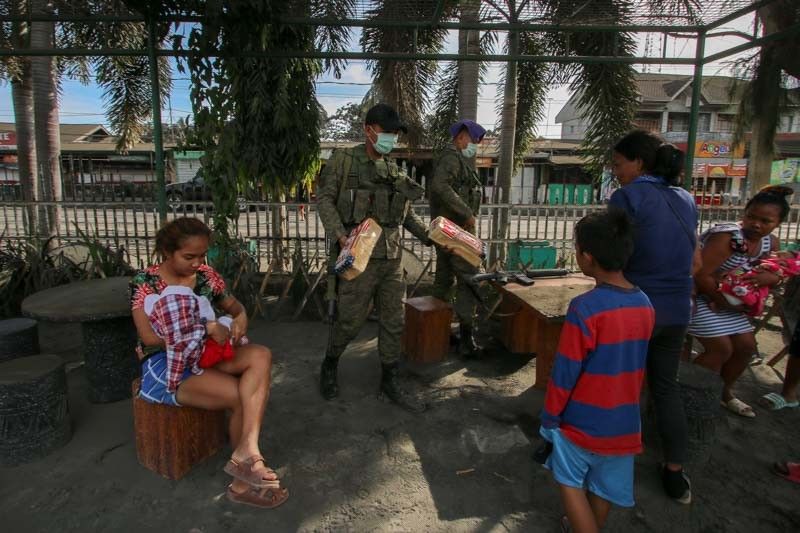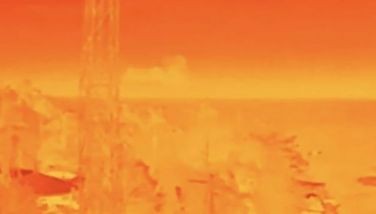Cavite rep wants probe into lack of warning before Taal eruption

MANILA, Philippines — Rep. Elpidio Barzaga (Cavite) is calling for a probe into what he says was a lackluster information drive on the possibility of Taal Volcano erupting.
House Resolution No. 643, dated January 13, directs committees concerned to conduct an investigation into how government agencies may have failed to get, and give, advance warning of the eruptions, which began Sunday afternoon.
"Filipinos were taken by surprise by the recent Taal Volcano eruption wherein the losses in terms of life and property are still unaccounted for," the resolution reads.
The resolution acknowledges the Phivolcs claim that an earlier Level 1 warning had been up since March 2019, but says that "there is clearly a lack of dissemination of information in the hazards of volcanic activity [to] the general public."
"There is also an imperative need to determine the necessary improvements in the responses of the different government agencies," the resolution read.
At around 2 p.m. on Sunday afternoon, Taal began two spew ash and rocks that piled up to a kilometer high, prompting the state volcanology bureau to ratchet the alert level to 4 in a matter oh hours.
Tagaytay, a popular tourist destination in Cavite, overlooks Taal Lake.
Disaster 'unpreparedness'
This prompted the mass evacuation of some 300,000 citizens in the area, according to a bulletin from the National Disaster Risk Reduction and Management Council (NDRRMC), which has gone on red alert, requiring all disaster officials in the region to report to their headquarters 24/7.
READ: NDRRMC on red alert over Taal unrest
As of the NDRRMC update early Tuesday morning, a total of 6,891 families or 30,423 persons were forced to take shelter in some 38 evacuation centers. In the immediate aftermath of the eruption, some 300,000 were slated for evacuation.
Data from the Harvard Humanitarian Initiative Program on Resilient Communities (HHI PRC) nationwide household survey showed that "99.80% of households surveyed across the Philippines had no disaster management plan specific for volcanic eruption."
The survey went through "a nationally representative sample" of 4,368 adults representing all Philippine economic strata and also found that 41% of respondents reported that money was the biggest obstacle to disaster preparation.
Furthermore, 75% of households reportedly did not have an "emergency go bag."
'Profiteering'
Barzaga in his resolution also sought to file charges against "unscrupulous" persons who sold face masks "and other food and supplies" at an unreasonable cost.
Reports of these sellers arose on social media in the hours following the initial eruption as stores ran out of supplies of the aforementioned face masks.
This, while the prices of ordinary surgical mask, which are normally priced at P30 per box, skyrocketed to as high as P100. Reports surfaced, too, that the price of an N95 mask rose to P200.
Section 5 of Republic Act No. 7581 or the Price Act reads:
"[I]t shall be unlawful for any person habitually engaged in the production, manufacture, importation, storage, transport, distribution, sale or other methods of disposition of goods to engage in the following acts of price manipulation of the price of any basic necessity or prime commodity,"
The law also defines profiteering as "the sale or offering for sale of any basic necessity or prime commodity at a price grossly in excess of its true worth."
Separate reports on social media arose as well of citizens giving out face masks for free, while many organizations have been holding donation drives for those displaced by the eruption.
READ: LIST: Where you can donate for Taal Volcano relief efforts
"In this time of adversity, we should not forget to commend the countless brave and honorable people who are helping those that were adversely affected," Barzaga wrote.
- Latest
- Trending


































